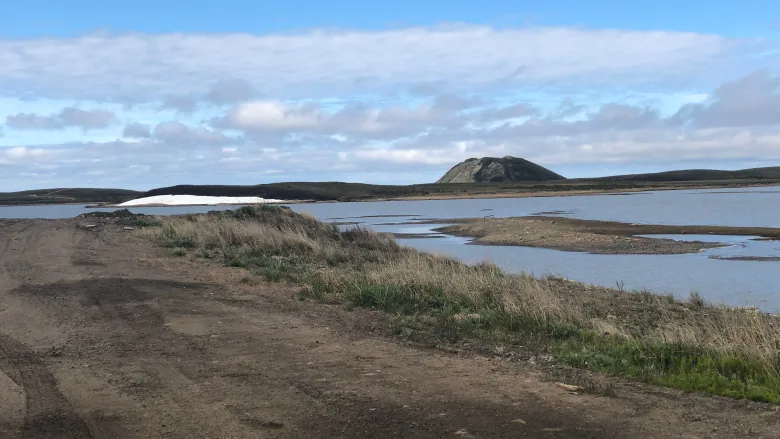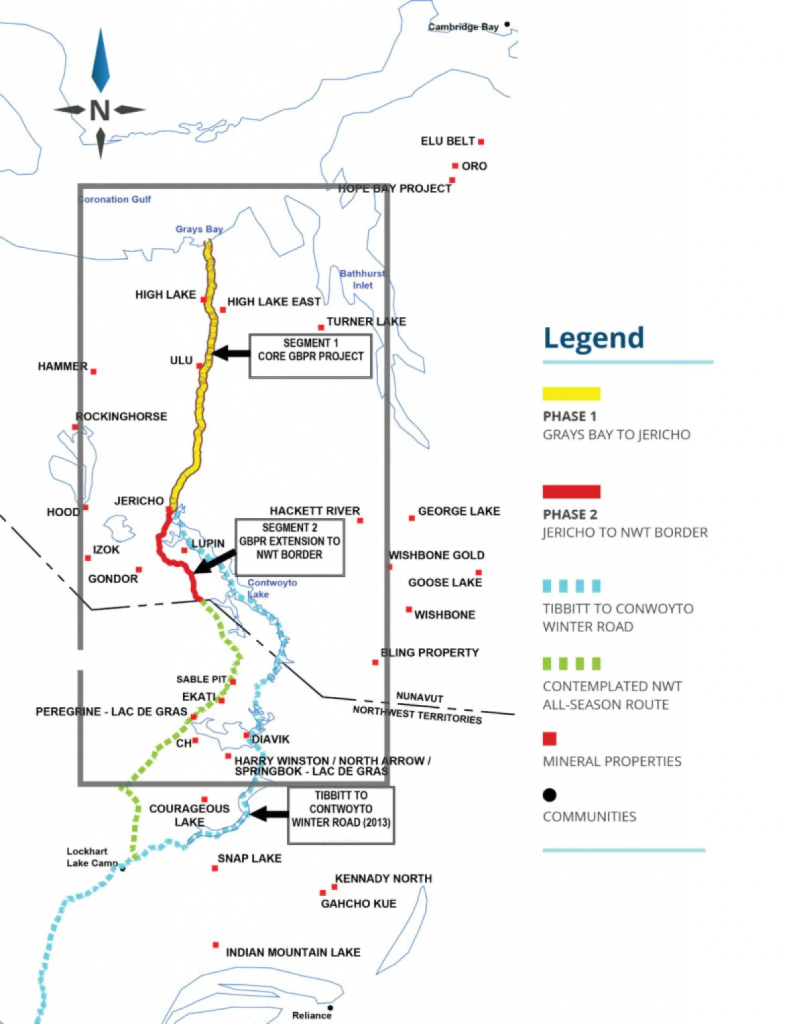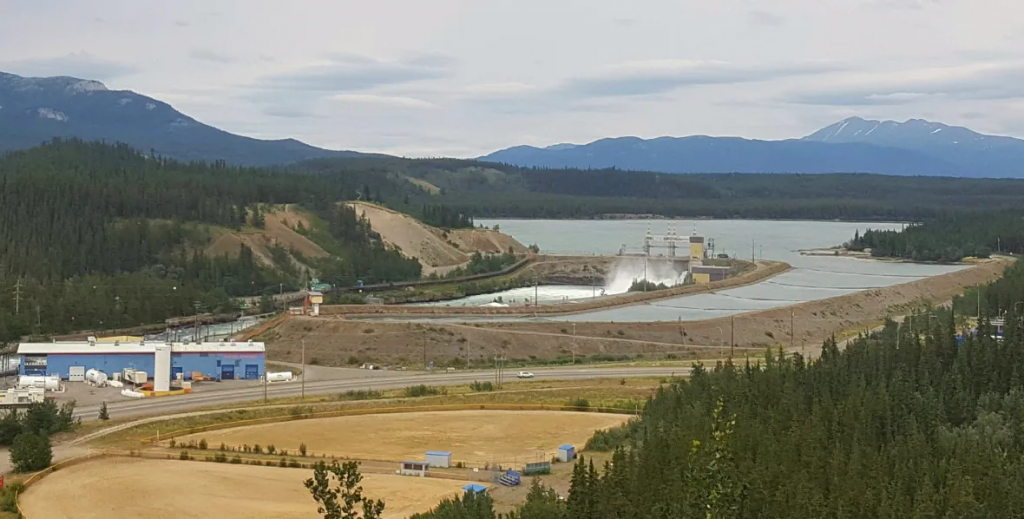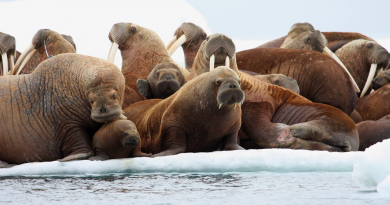Canadian Election: Conservatives promise funds for northern ports, hydro projects

Deep water port in Tuktoyaktuk, major energy project in Yukon among campaign promises
The Conservative Party is promising to “close the infrastructure gap” in the North and help pay for several projects if elected, including road and hydro links between Nunavut and Manitoba, a port in Tuktoyaktuk, N.W.T., and a clean energy project in Yukon.
None of the four projects highlighted in the party’s platform are new ideas, and the Conservatives have not pledged any specific dollar amounts.
Deep water port at Tuktoyaktuk
Prime Minister Stephen Harper was on hand in Inuvik, N.W.T., in 2014 as work began on the 138-kilometre Inuvik-to-Tuktoyaktuk all-season highway, but he’d been voted out of office by the time the road opened in 2017.
Now his party says it’s time to convert the harbour at Tuktoyaktuk into a deep water port, as a way to boost oil and gas development as well as tourism in the region, and become a potential shipping hub.
The harbour was used extensively during the oil boom of the 1970s and 1980s, though it’s shallow. A 2014 report says the harbour is too small to accommodate large vessels that deep sea exploration would bring, and so a deeper channel would need to be dredged. The report estimated it would cost $100 million dollars over four years to dredge a 22-kilometre channel from Tuktoyaktuk’s harbour into the deeper waters of the Beaufort Sea.
In 2018, the hamlet’s then-mayor, Merven Gruben, and Jackie Jacobson who wasn’t an MLA at the time but had been one and has since become one again in 2019, traveled to Ottawa to pitch the port. Both said, at the time, that oil and gas work in the region would be back, though others dispute that idea.
Grays Bay Road and Port project
If the Grays Bay Road and Port project goes ahead, it will be the first road connecting Nunavut to the rest of Canada.
The 230-kilometre road would connect a proposed deep-water port at Grays Bay — on the Northwest Passage between Bathurst Inlet and Kugluktuk, Nunavut — to the winter road that services the N.W.T.’s diamond mines.
The project is being championed by the Kitikmeot Inuit Association (KIA), and in 2019 the federal Liberal government contributed $21.5 million as an “initial investment.”
That money would pay for “all those ducks you need to line up before you say, ‘Ok, let’s build it’,” said Marc Garneau, who was the federal transportation minister at the time.

Past estimates for the whole project were around a half billion dollars.
The government of Nunavut along with KIA had earlier applied to Transport Canada for the half billion in funding but in 2018 the territorial government pulled out of the project and the funding was denied.
The Kivalliq Hydro-Fibre link project
The Kivalliq Hydro-Fibre link project would see the first land-based electrical transmission system connecting Nunavut to Manitoba. The project would also bring broadband internet service to several Nunavut communities (Arviat, Baker Lake, Chesterfield Inlet, Rankin Inlet and Whale Cove).
The Kivalliq Inuit Association is leading the project, and last year it signed a memorandum of understanding with the Canada Infrastructure Bank (C.I.B.). The federal Crown corporation agreed to contribute to the project by conducting a market analysis, and providing commercial and investment expertise.
In 2019, the Liberal government spent $1.6 million on a feasibility study for the project. Last spring, the Liberals pledged another $3 million for more feasibility work including data collection and consultations with Indigenous groups in Nunavut and Manitoba.
The Liberals’ 2021 budget also highlighted the project as a potential beneficiary of new funding for “hydroelectricity and grid interconnection projects in the North.” The budget promised $40.4 million over three years for such projects.
The NDP platform, meantime, promises “high-speed rural broadband to all communities in Canada without delay, and ensuring that reliable cell phone service is expanded to every area of Canada.”
‘Clean’ power project in Yukon
The Conservatives’ promise to fund a new ‘clean’ power project in Yukon is notably vague. The party platform says only that it will fund “a large-scale project to provide clean power to the Yukon, developed in partnership with the Government of the Yukon.”
Yukon Energy, the territory’s power corporation, has faced a major increase in electrical demand in recent years, spurred by a growing population in the territory and the number of new homes heated with electricity. For the past few winters, the company has been renting diesel generators from B.C. to meet demand.
In 2019, the company bowed to public pressure and pulled the plug on a proposal to build a new 20 MW thermal power plant in Whitehorse. A year later, it presented a draft 10-year strategy laying out some renewable-energy alternatives that would require funding from Ottawa.

One of those ideas would see Yukon Energy source power from the Taku River Tlingit’s hydro plant in Atlin, B.C. The First Nation is planning an expansion of that facility, and the Liberals’ 2021 budget highlighted that project in announcing the $40.4 million for hydroelectricity projects.
The New Democrats’ platform promises to establish a new “Canadian Climate Bank” to boost investment in renewable energy and “inter-connect power grids and introduce smart grid technology, to bolster Canada’s energy security and distribute clean power across the country.”
The Greens are promising “targeted, national infrastructure investments in renewable and efficient energy production.”
With files from David Thurton, Sara Frizzell and Chris Windeyer
Related stories from around the North:
Canada: Candidates take aim at Quebec’s largest riding, CBC News
Greenland: Greenland’s more prominent role on Arctic Council important signal to int’l community says foreign minister, Eye on the Arctic
Norway: Are Norway’s energy policies caught between ‘black gold’ & green ambitions?, Blog by Marc Lanteigne
United States: Biden admin goes back to drawing board on oil leasing in Arctic Refuge, Alaska Public Media



